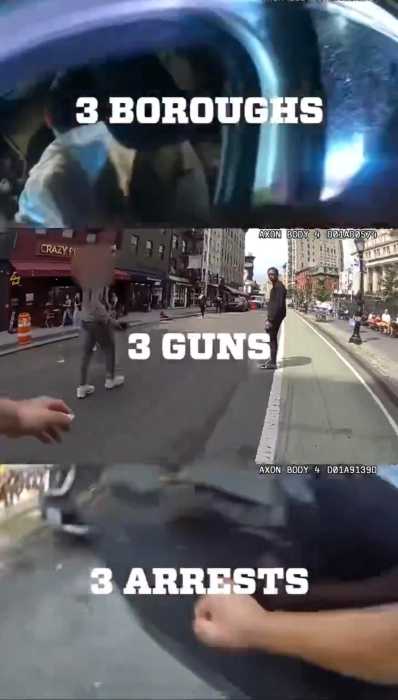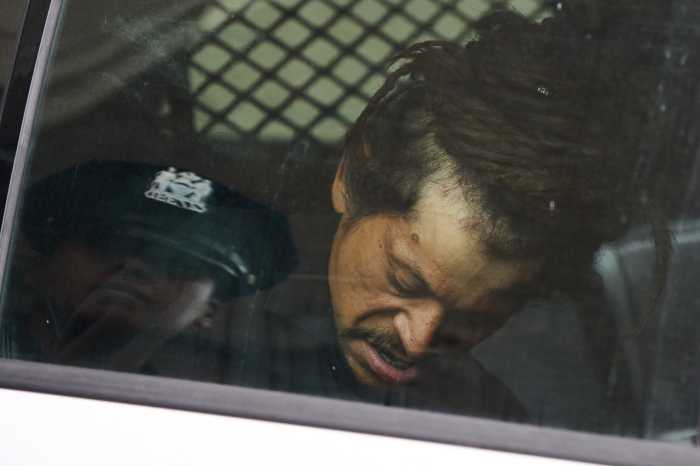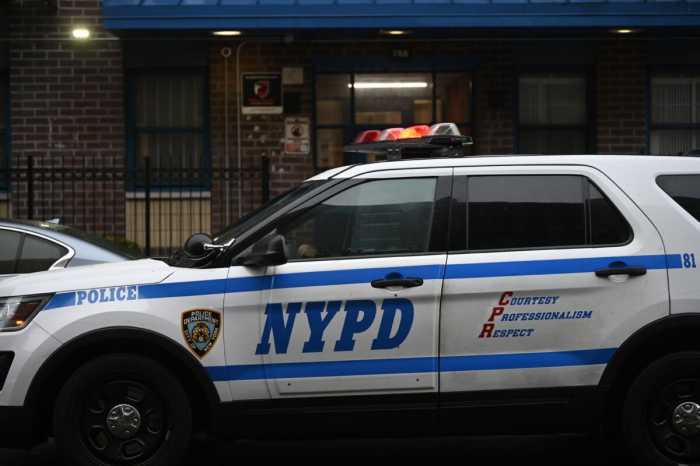
Mohammad Sharif cleaned off his cab — parked in a No Parking zone in front of the Madina mosque on First Ave. — as he waited for his food from the halal truck.
BY PAUL BUFANO | After more than a decade of trying to increase parking enforcement in front of his family-owned tile business, an East Village merchant now faces three counts of felony assault as a result of an argument that turned violent.
Carlo Giurdanella, owner of Bella Tile, at 178 First Ave., recently spoke at the Ninth Precinct Community Council’s monthly meeting about a parking situation that he said has been affecting his business since 1982. According to Giurdanella, the problem stems from a constant flow of taxi drivers looking to eat at a halal food truck and pray at the Madina mosque at 401 E. 11th St. at First Ave.
Giurdanella said that after police held a public meeting on the issue in 2002 most drivers stopped double-parking, yet have continued to park in restricted zones and block his business’s active driveway.
“I’ve been going to community meetings and talking to officials since 2000 to get things changed,” Giurdanella said.
“Aside from our business using the driveway for deliveries, my father is disabled and needs access at all times of the day. Many drivers are in a rush to eat and pray, and just pull in our driveway. What is my father supposed to do, walk a few blocks?”
Mohammad Sharif, 60, a New York City taxi driver for the past 27 years, said that while the area is a popular destination for hacks, not many of them would chance an expensive ticket.
“I can see how it may seem like a lot of cabs at times, but we respect the law,” Sharif said. “If a regular car parks in the wrong place it gets a $75 ticket, but if a taxi does that’s a $160 ticket. Admittedly, I’m now pulled over in a No Parking zone, but I’m waiting by my car just to get some food. If I need to move I easily can, and I think that’s the case most of the time.”
The parking predicament became violent this past June when Giurdanella arrived at his business to find a taxi sitting in his driveway. The incident began with Giurdanella making a complaint with a Department of Transportation employee checking parking meters, but quickly went from a verbal dispute with the driver to a physical one. Giurdanella was changed with three counts of felony assault, and now awaits trial in April.
Lieutenant Patrick Ferguson, the Ninth Precinct’s special operations supervisor, said police are trying to come up with solution that will leave all sides happy.
“On the one hand, you have a man who owns a business, and is entitled to have access to his driveway,” Ferguson said. “On the other hand, you have a religious institution where people go to pray throughout the day. We’re not going to deny them the right to pray, just as we wouldn’t any other religious institution. And then there’s the food truck to factor in. It’s a delicate issue that has to be dealt with now before things get worse.”
The police have since suggested supplying Giurdanella with a crowd-control-style French barrier on wheels to inhibit taxis from parking in his driveway.
John De Robertis, owner of De Robertis Pastry Shop, at 176 First Ave., agrees that parking has become an issue, and said that the halal food truck is a big contributing factor.
“There’s no doubt that my business has been hurt by all of this illegal parking,” De Robertis said. “Sometimes these cars aren’t only double-parked, but triple-parked in front of my store. This takes away parking for my customers, and I’m losing because nobody wants to walk a few blocks. There’s just not enough room over here and something has to be done about it.”
Both De Robertis and Giurdanella said they have called 311 and filed complaints about the food truck and how its supply van violates commercial van laws by parking overnight, but that no action has been taken.
Aziz Sabir works in the food truck, and said he’s open to suggestions in order to lessen the problem.
“Officers from the police station stopped by earlier this morning to talk about putting up signs to let drivers know they can’t park illegally,” Sabir said. “I have no problem with reminding people this because I just want to do business and make everyone happy. We run a licensed truck that gets many customers. This can mean many cars, but what can we do about that?”
Giurdanella said that he doesn’t have any racial or religious prejudices, and that his reaction would be the same were the building a church or a synagogue.
“I don’t care who you’re praying to, or what you want to eat,” he said. “All this comes down to is respecting people’s property and respecting the laws. I have an obligation to protect and provide for my family. A sense of mutual respect is all I’ve ever wanted, so hopefully something can be worked out soon.”




























